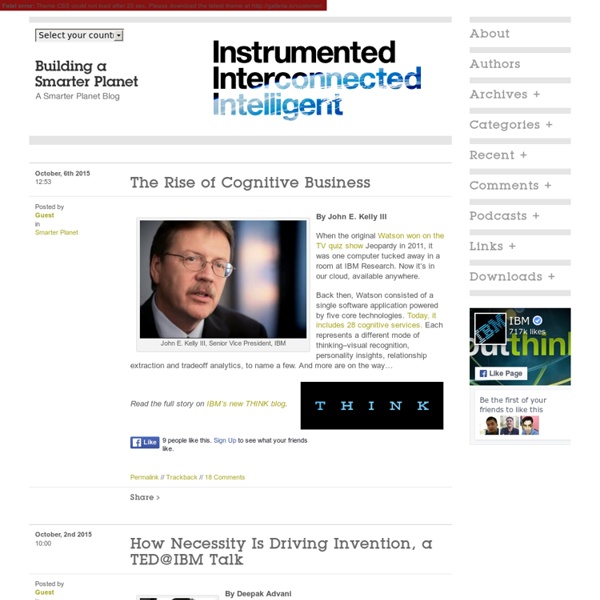



Oak Ridge National Laboratory - Energy Driven by the goal of reducing fossil fuel use and pollution, ORNL’s clean energy research plays a pivotal role in America’s energy future. Scientists and engineers are applying the knowledge they gain from these studies to develop and deploy real-world solutions for energy security and protecting the environment. From exploring the genetics of poplar trees for use in biofuel production to uncovering the potential for using byproducts of this process in advanced materials for automotive and wind technologies, clean energy research spans ORNL disciplines including biological and environmental sciences, advanced materials, neutron sciences, nuclear sciences, and high-performance computing, and brings multidisciplinary teams together to address key issues. That means moving well beyond engine efficiency in studying the vehicles of the future, for instance. By embracing industry partnerships to advance clean energy technologies, ORNL is promoting domestic manufacturing and job growth.
IBM Syndicated feeds A menu of expertise and insight from a passionate crowd As they'll tell you themselves, the opinions and interests expressed on IBMers' blogs are their own and don't necessarily represent this company's positions, strategies or views. But that doesn't mean we don't want you to read them! Because they do represent lots of business and technology expertise you can't get from anyone else. Scroll through the list to browse, or click the links below to jump down to each letter.
Category:Systems A system is a set of entities, real or abstract, comprising a whole where each component interacts with or is related to at least one other component and they all serve a common objective. For the purpose of organizing articles into categories, there are four major type of system which can reasonably be expected to contain every type of system under its category tree: Physical systems, Biological systems, Social systems, and Conceptual systems. Subcategories This category has the following 7 subcategories, out of 7 total. Federal Energy Management Program: Building Life-Cycle Cost (BLCC) Programs The National Institute of Standards and Technology (NIST) developed the Building Life Cycle Cost (BLCC) Program to provide computational support for the analysis of capital investments in buildings. BLCC5 Program Register and download. BLCC 5.3-13 (for Windows, Mac OS X, or Linux). BLCC is programmed in Java with an XML file format. The user's guide is part of the BLCC Help system.
Impact Blog Skip to main content link. Accesskey S Skip to tab navigation link. Accesskey 1 Skip to sub navigation. Swarmwise – The Tactical Manual To Changing The World. Chapter Two. Launching a swarm is an intense event, where you can get hundreds or thousands of new colleagues in less than a day. You have a very short window for appreciating their interest, or they will take it elsewhere. OK, so you have a provocative idea. You’ve done the math. PNNL: FEDS - Facility Energy Decision System The Facility Energy Decision System (FEDS) is an easy-to-use building energy efficiency software tool that quickly and objectively identifies energy efficiency improvements that maximize life-cycle savings. The Windows-based program requires only minimal user experience and input to perform energy efficiency assessment screenings as well as detailed energy retrofit project analyses across a wide variety of building types, from single buildings to large multi-building campuses and installations. Requires only minimal user input yet is able to accept detailed building system parameters. FEDS estimates unspecified parameters based on typical characteristics for a building of the specified type, size, age, and location and other details. Models energy and cost performance of heating, cooling, ventilation, lighting, motors, plug loads, refrigeration, building shell, and hot water systems, plus central plants and thermal loops.
Game Reserve Special Our reservation team will guide you to create your tailor-made safari and your Inverdoorn experience. Choose betwen Day visit, one of our luxury accomodations or the guest house and get ready for real african adventure ! Pack your cameras and prepare yourself to meet our 1 200 roaming wild animals including lions, rhinos, hippos, cheetahs, buffalos, elands meerkats... and many more !
monochrom Hedonistika 2016 will take place at Cinematheque Holon (near Tel Aviv) as part of Print Screen Festival! Hedonistika is an interactive exhibition of gastronomical robots, cocktail machines, and experimental food performances. Created by artists collective monochrom from Vienna, Hedonistika is a travelling festival which moves from city to city and culinary landscape to culinary landscape, find local curatorial partners and cooperate with local hackers, builders, chemists and food phreaks to present a tour-de-farce of new approaches and discourses. Hedonistika says: don't let us trick ourselves into the absurd belief that organic food and machines are enemies. They aren't. It's the system, dummies! Argonne's Sustainability Initiative Taking 10 minutes to inspect your home for water leaks can lead to big financial savings. By Peter Lynch, Environmental Engineer The U.S. Environmental Protection Agency (EPA) suggests that identifying and fixing plumbing leaks—often minor issues with quick and easy fixes—can save homeowners about 10,000 gallons of water a year.
25 ways to improve your presentationsBad Language All of us have at some point been bored to tears by a presentation. If you are lucky, you have also been informed, excited and inspired by an outstanding one. If you haven’t there are plenty of good examples on TED. Argonne TTRDC - TransForum v10n1 - How Green is Your Grid The carbon impact of the millions of electric vehicles that may soon hit the road will depend on the electric grids that supply them. The odds are that your batteries won’t be recharged with solar or wind energy. In most places, grid power will come from the burning of fossil fuels, which generate their own emissions.